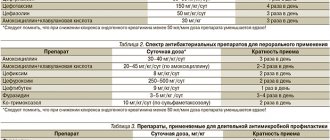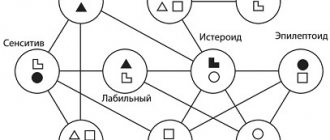What are a person's strengths and weaknesses on a resume?
Each person has advantages over others that he wants to indicate on his resume, and disadvantages that no one lacks, but it is better not to advertise them. It should be borne in mind that a person is not ideal and it would be wrong to collect only the strengths without mentioning the weaknesses.
At this point, the employer wants to see how adequately the person evaluates himself. Often a weakness can be useful for a particular profession. These personality qualities are closely related to each other and cannot contradict each other.
Often we try to highlight our advantages, but remain silent about our shortcomings. But only a self-critical, accomplished person can accurately highlight his weaknesses and not be afraid to say so.
You can find your strengths yourself, knowing your skills and talents, or ask those who see you from the outside - family and friends - to formulate them. The same can be done with identifying weaknesses. Their complete absence will tell the recruiter that you have not yet matured as a person.
What weaknesses should you mention at an interview?
As you already know, you will be asked to answer several difficult questions throughout the interview. By now you should have a clear answer to the question “What are your strengths?”, but what do you say when asked to describe your obvious weaknesses?
After all, you will appear arrogant if you say you have no weaknesses, but if your answer contains too many negative qualities, you could jeopardize your chances of getting the position. You need to appear humble and willing to learn without scaring off the hiring manager with a weakness that you can't overcome.
Researching weaknesses and preparing an answer is paramount to acing an interview. When thinking about your weaknesses, it is important to choose qualities that you are actively working on or demonstrate steps you are taking to overcome that weakness. Telling a story or how you are working to address this weakness can only strengthen your argument.
If you can't identify your weaknesses, reach out to a friend or close colleague to see where you can improve. Always remember that weaknesses are not permanent and just because you have a few weaknesses does not mean you are doomed. The ability to identify areas for improvement demonstrates that you are a well-rounded candidate.
Knowing how to answer the question “what are your weaknesses?” will help you succeed in your job search. If you have trouble writing an answer to this question, read some examples in the next chapter. Apply the same structure to your answers about professional qualities.
Table of strengths and weaknesses
We have collected some character traits in the form of a table. It will help you determine how to list strengths and weaknesses in your resume.
| Strong | Weak |
| Tenacious and results-oriented | Too shy |
| Hardworking | You don't have willpower |
| Confident | Overly emotional, irritable and even aggressive |
| Sociable | You don’t know how to keep silent in time |
| Organized and independent | Hyperactive |
| Easily perceive new information and can work with large volumes of information | Are you afraid to travel on ships and aircraft? |
| Learn quickly | Principled |
| Responsible for their own actions and the actions of subordinate employees | You don't know how to be flexible |
| Disciplined | Overly self-critical |
| Active, energetic | Straightforward |
| Have organizational skills | Too proud |
| Punctual | Impulsive |
| Developed creative thinking | Supporter of formalism |
Match your strengths with those personality characteristics that will help you get the job you want. Please note that some of them, which seem like an advantage to you, may turn out to be a disadvantage for the applicant.
Read more - What weaknesses can be written in a resume?
Examples: How to answer a question about weaknesses
1) I am prone to constant self-criticism. Whenever I finish a project, I can't calm down because I feel like I could have done more, even if my work received positive feedback. This often leaves me feeling overworked and exhausted. It was only recently that I decided to find out the cause of these symptoms and realized that I needed to be more confident in myself. I analyzed my performance reviews and my achievements over the past year and realized that I am one of the most productive employees. This is what gave me confidence in my abilities.
2) I am overly introverted, which makes me afraid to share my ideas in teams or speak up in group meetings. I always feel like I have a good proposal, but I don't always feel comfortable coming up with it. After my team failed to meet expectations on two projects in a row, I decided to combat my introversion. I started watching tutorials on YouTube and read several books on the topic. I'm still in the learning phase, but it's already much better than a year ago.
3) I often like to do work myself without outside help. This has caused me unnecessary pressure and stress in the past. One specific example was last year when I was in charge of planning our company's annual event. I tried to do everything myself, from the biggest decisions like meeting place to the tiniest things like table settings.
I barely completed this task before the deadline. It taught me to take a step back and analyze when I need help. After this event, I learn to ask for help from people who understand more about some of the details of my project. This helps me stay calm and not waste time looking for a solution. I have also found that a team of people can produce better results than one person.
4) I still have little understanding of electronics and digital innovations. I always have a hard time with a new program or application that my company starts using. I spend a lot of effort, time and nerves to get used to such things. I recently received my first lackluster feedback from my boss about my productivity. I immediately understood the reason and began to try to quickly master the new application. 10-15 minutes of lunch time and the help of knowledgeable colleagues allowed me to solve the problem within a couple of weeks, and now I have reached my previous level of efficiency.
5) I always try to avoid conflicts in both my personal and professional life. This sometimes forced me to compromise, sacrificing the quality of my work in order to maintain peace in the team. This became a real problem when I became head of the department. One of the most important aspects of managing people is telling them what they need to hear, not what they want to hear. I recognized this weakness and actively worked to voice my opinions constructively for the effective functioning of the department.
6) When I work on a project, I am very focused and work hard to complete it. However, when new projects are assigned to my department, I start to become completely immersed in them and stop working on the ones I was doing. Having to jump between tasks so many times throughout the day makes it difficult for me to be productive and do a good job. A couple of months ago, I started using project management software to help me manage my tasks and time, which has helped me better understand my priorities. Since then I have improved my efficiency and productivity.
The better you can articulate your most significant weaknesses, giving examples and how you are trying to overcome them, the faster you will be successful in your job search. You should always show that you know your weaknesses and are working on them so that they do not hinder you in your professional life. If you're trying to find your weaknesses, ask a close friend or colleague to help you, or use the same annual performance review. Once you can clearly identify your weaknesses, stories and examples will immediately appear.
Conclusion
Now your main goal is to find your strengths and weaknesses, remember examples from the past and constantly practice your presentation. Rehearsing is one of the most important steps before an interview. If you are not very good at telling your examples and stories, then you will come across as insincere. With the right approach to the practical part, you can come up with an answer that will amaze the recruiter when he asks: “What are your strengths and weaknesses?”
What else is interesting to read?
How to tell your boss you're leaving
May 27, 2020
When you're about to announce your departure from a company, you're probably tempted to proudly and...
17781
How to write emails correctly. Email Etiquette
June 02, 2019
Email is a special communication channel that needs to be analyzed...
17725
How to identify your strengths and talents for career development
November 29, 2018
Are you on the right track for your career growth? Or do you just want to do something...
17594
What to say about yourself at an interview
November 03, 2019
This seemingly simple interview question is underestimated by those...
16275
How to properly ask for a salary increase. The most important questions
February 12, 2020
When you work hard and go beyond your job description or...
12834
Strengths and weaknesses relative to the position
Each position has its own set of personality aspects that the employer pays attention to. It is very important to strike the balance that will make you the ideal candidate for the position.
Tables of strengths and weaknesses for each profession:
| Strong | Weak |
| Salesman | |
|
|
| Supervisor | |
|
|
| Manager | |
|
|
| Accountant | |
|
|
Read more - What can you write about strengths in your resume?
Helpful tips on how to better understand your strengths and weaknesses
It's never easy to talk about your weaknesses. Therefore, when writing a resume and at an interview, it is better to answer this question by avoiding the following points:
- hide personal qualities that are unfavorable for yourself, for example, low self-esteem, hot temper, lack of self-confidence, inattention, etc.;
- the weakness should not concern professional competence.
Let this be a fairly minor negative characteristic that is not capable of influencing the decision to refuse the desired position. Carefully study the requirements for the vacancy and do not indicate everything related to the qualities and skills required for the job.
In general, when creating a resume, it is recommended to indicate universal strengths.
For example, always set goals and strive to achieve them.
This will show you as a goal-oriented person, ready to plan and achieve. Self-confidence will also have a positive effect on your grade and will speak of you as a person who is not afraid to move forward.
The ability to communicate with colleagues and clients (if the work involves communications) and responsibility are also important. Rather, these are the most necessary traits for any employee.
What character traits are worth mentioning during an interview?
Many applicants, when going to an interview, make one common mistake - they voice only their positive qualities, making it clear that they have no shortcomings. Of course, it is unlikely that at least one employer will believe that this is really the case - he may come to the conclusion that you are lying or are not able to give yourself an objective assessment. That is why, when it comes to shortcomings, mention qualities that specifically in this organization will be perceived favorably. You can tell the employer that you consider it a negative quality that you often pay attention to little things - if you are applying, for example, for a doctor's position, then, of course, such a revelation will be received positively.
In general, think about what negative trait will be loyally perceived in the institution where you want to become an employee. And of course, don’t forget about the traits that are valued almost everywhere: efficiency, friendliness, optimism, sense of humor, responsibility, self-control and others. Of course, try not to embellish the reality, or later, when hiring, at least strive for the specified qualities, if in fact you do not possess them.
Exercises to identify strengths and weaknesses
Identifying personality characteristics is never an easy task. Therefore, it is necessary to carefully weigh all the strengths and weaknesses at the stage of preparing a resume, then this information will be useful for the interview. First make a list of them as follows:
- Analyze your character traits in detail. Think about what you can do most easily and what requires effort. Write down the qualities required to complete these tasks.
- Reach out to friends and family for help. They will point out the advantages and disadvantages, because from the outside they can see better.
- Evaluate all the qualities you wrote down on the sheet. Sort them according to the principle of advantage - disadvantage. For example, you prepared for a presentation, selected all the material, designed it, but were unable to speak. On the part of the performer, you approached the matter responsibly, were attentive and diligent. But from the leadership side, you cannot speak to the public.
- Identify the qualities of the applicant for the position and write them down.
- Compare your characteristics with those required for the required vacancy.
- Evaluate the result, determine your shortcomings and the ability to cope with them.










